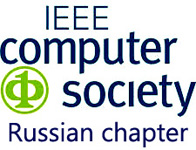| Programme Committee | Keynote speakers | Registration | Submission | Agenda | Partners | History |
2023 International Workshop
High Technologies History and Development
Before the opening of the Workshop
St.-Peterburg, December, 19, 2023
Dear Colleagues!
The International Workshop "High Technologies History and Development" (HISTHIGHTECH-2023) is our traditional one-day scientific event,
which will be held on December 19, 2023 in St.-Peterburg.
The workshop main topic is High Technologies
and their impact on the development of society: origins, history of development, current state, prospects. Our workshop aims is to get
a comprehensive picture of the development of such technologies, their application and distribution. The forum is intended to become
a bridge between the present, the past and the future. History and modernity. A look into the future.
This year marks the 75th anniversary of the history of Russian Computer Science. On December 4, 1948, the State Committee of the Council of Ministers of the USSR
for the introduction of advanced technology in the national economy registered an application for the invention of an "Automatic Digital Computer".
We welcome reports related to the history and development of computer science and its applications, including humanitarian and social aspects of the development
of computer technology.
The conference will be held in hybrid mode with a limited number of participants.
Information about the previous conference can be found
here.
Proceedings of the previous conference are available in the
IEEE Xplore electronic library.

Conference Commitees
Conference Chair
Roman Fando, Director of Institute for History of Science and Technology RAS
Program Committee, Chair
Yuri Baturin, Corresponding Member of the Russian Academy of Sciences
Organizing Committee, Chair
Sergei Prokhorov, Chair of IEEE Computer Society Russian Chapter
Submission
We invite you to present the results of your work at the workshop by preparing and sending abstracts.
Original articles in English and Russian on the relevant topics of the workshop, not previously presented at other conferences,
are accepted for review.
The volume of abstracts is 1 page of text in the interval 1.5.
The authors of articles that received positive feedback from reviewers will be able to speak at the workshop, and the articles themselves
will be recommended for publication in English in the workshop proceedings "Proceedings of the International Workshop
on High Technologies History and Development".
Abstracts must be submitted to the address conf.psp@gmail.com
Articles in English with a volume of 3-8 pages are drawn up in accordance with the requirements
IEEE Manuscript Templates
The title of the article is size 14! The instructions mistakenly say 24: Upper and lower margins of at least 2 cm.
Key dates
Abstract Submission Date: October 10, 2023
Notification of Acceptance Date: October 30, 2023
Paper Submission Date: November 30, 2023
Final Paper Submission Date: December 15, 2023
Program
Pre-conference program
December 18, 2023
12:00 Museum complex of St. Petersburg State Electrotechnical University "LETI"
Acquaintance with the exhibition dedicated to A.S. Popov's life and work.
We discuss the idea expressed in one of the talks at HISTELCON 2023: “Museums shape the stories we tell,” as well as the new IEEE Global Museum initiative.
15:00 D.A. Granin's cultural and educational Center
Acquaintance with the exhibition dedicated to D.A. Granin's life and work.
We tell ourselves and listen to others about a world where the heroes of Daniil Granin’s books are recognizable in our colleagues, opponents, and ourselves.
Conference program
St. Petersburg Branch of the Institute of History of Science and Technology of the Russian Academy of Sciences
St. Petersburg, Universitetskaya embankment, 5
December 19, 2023 Registration of participants: 10:30. Conference plenary session: 11:00
Ashcheulova N.A. (SPb IHST RAS) Welcome speech
Organizers and Partners
Baturin Yu.M. (IHST RAS)
Time virtual and cosmic
If a person has one watch, he knows the exact time. If he has two watches, he is not sure about it. For centuries, some discrepancies had no practical significance.
In the 19th century, it was necessary to introduce a single (universal) time, and the number of collisions on railways decreased sharply.
Space flight required the highest precision, but this confidence was no longer achieved as astronomical and atomic time systems began to be used in parallel.
Their synchronization was required. With the advent of modern information technologies, problems of accuracy and time synchronization in the virtual world have become more acute.
Any errors in the measurement of virtual time will lead to the spread of an entirely new class of computer crimes and call into question the creation of the metaverse as intended.
Afendikova N.G. (IAM RAS)
K.A. Semendyaev and the first settlement bureau in the USSR Atomic Project
All techies know K.A. Semendyaev as the author of a popular reference book on mathematics, but few people know that he was the head of the calculation bureau
of the Steklov Mathematical Institute and supervised all calculation work on the Atomic Project and ballistic missiles. N.G. Afendikova, director of the museum M.V. Keldysh,
will talk about this little-known area of activity of the outstanding Soviet scientist.
Ulyankina T.I. (IHST RAS)
To the centenary of the Russian Academic Group in the USA
The Russian Academic Group in the USA (RAG in the USA), whose centenary is celebrated this year, is a unique monument to the selfless public and voluntary activities
of Russian emigrant scientists of the “first” (1917-1939) and “second” (1940-1950) waves of emigration from Russia. This is one of the successful historical experiences
of self-organization of Russian scientists abroad, which today is of great interest to historians, sociologists, and emigrant scholars. The work was carried out using documents
from the Archive of the Russian Academic Group in the USA (Kinnelon, New Jersey, USA) and the Russian Foreign Historical Archive in Prague (GA RF, Moscow).
Chernysheva-Granina M.D. (Daniil Granin Foundation)
My family and people of science
Daniil Granin wrote about the people of science. His books were unusual. Daniil Granin subtly understood the world of science. In the heroes of his books, everyone
found a piece of themselves and their world. The title of the report speaks for itself.
Khlebnikov B.N., Lerman E.V. (Daniil Granin Foundation)
Daniil Granin and centaurs. Biographical Research.
The report will discuss the reflection of the scientific process, the personality of the scientist, and the historical context in the artistic research of the writer.
Prokhorov S.P. (IHST RAS)
Hydrodynamic model of the Earth of the Computing Center of the USSR Academy of Sciences of the 1980s
In the mid-1970s, on the initiative of N.N. Moiseev at the Computing Center of the USSR Academy of Sciences began to develop a software and mathematical model
of climate change as a result of anthropogenic impact. What restrictions might climate change have on economic development and population growth? In the 1980s,
a 3-dimensional hydrodynamic model of the Earth was used to calculate the “nuclear winter” effect that would occur after an exchange of nuclear strikes.
There will be no winner, no matter what happens.
Zaytseva E.V., Kochneva A.A., Kiba M.R., Katuntsov E.V. (St. Petersburg Mining University)
Development of digital image processing in the mining industry
The mining industry is characterized by hazardous working conditions and environmental hazards at mining sites. New breakthrough technologies for collecting
and digital image processing can significantly improve monitoring of the situation in mines and other mining facilities.
Khablova E.S. (SPb IHST RAS)
Nutrition, food industry and agronomy: trends in Europe and the USSR during the interwar period
The First World War brought major changes to everyday life in Europe. Since “you always want to eat,” the food culture has also changed. What influenced these processes?
How did science invade such an individual sphere as personal diet? The report presents an attempt to outline the main trends in the restructuring of the gastronomic
and agronomic spheres.
Borisova N.A. (A.S. Popov Central Museum of Communications)
The influence of society on the development of new technologies in telecommunications: past and present
Radio, television, mobile communications, radar, radio navigation, radio relay, and satellite communications, as well as all the high technologies that have contributed
to success in these areas, have had a huge impact on the lives and activities of society for many years. Less obvious is the question of how society influences the development
of high technologies.
Zolotinkina L.I. (SPb SETU "LETI")
Memorial Museum of A.S. Popova in the dynamics of its development
Memorial Museum of A.S. Popov was opened on June 27, 1948 by decree of the USSR Government. The museum houses more than 30 unique pieces of equipment. 12 of them,
shown in the main exhibition, are certified as monuments of science and technology of the 1st category. Museum A.S. Popova is a living organism, an important link
in the system of training highly qualified personnel.
Scientific notes
Prokhorov S.P. (IHST RAS)
A new project at the IEEE World Museum
In the new IEEE World Museum project, large and small museums will not compete, but complement each other.
Burdonov I.B., Gaisyaryan S.S., Shnitman V.Z. (ISP RAS), Prokhorov S.P. (IHST RAS)
Computer Electronics SS BIS
The Elektronika SS BIS computer was supposed to become the most powerful import-independent computer in the USSR. But she didn’t. With the collapse of the USSR
this project was closed. The computers, assembled and ready for use, were disassembled. But the final point in this story has not yet been set.
Budreyko E.N. (IHST RAS)
History of electrochemical chromium plating
Development and introduction into industry in the late 1920s. Chrome plating technology is considered one of the most important periods in the history of electroplating.
This is due to the transition from the method of experimental selection of the electrolyte composition and electrolysis conditions to the study of the process using
scientific methods. It is no accident that professors from higher education institutions primarily carried out the development of industrial chrome plating.
De Apro S.V. (MSU)
Criterion for managing artificial intelligence with room for error
If we admit that the new generation of AI is not a simple program based on algorithms, but an imitation of human cognitive functions, then the task of managing
artificial intelligence must be formulated completely differently. The scale of errors made by humans and automated (“intelligent”) systems, their potential impact
on the security of the state, society and the individual are analyzed.
Nosov N.V. (IHST RAS)
Consideration of relativistic effects in the Digital Earth satellite subsystem and navigation accuracy
High-precision navigation systems of the future should create a safe and comfortable environment for society, in particular, in the unmanned transport network of the future.
The requirement to take into account relativistic effects in them becomes critically important.
Panin V.O. (MSU)
Formation of a new iteration of the Internet (metaverse): technological barriers and ways to overcome them
Currently, the vector of development of the Internet according to the “metaverse” model is faced with a number of technological problems, the key of which is the lack
of technologies to ensure a sufficient level of interoperability between virtual platforms. Methods for overcoming them, proposed in foreign studies, are analyzed,
asiss the role of non-governmental organizations in building the Internet of the future.




Venue
St.-Petersburg branch of the Institute for the History of Science and Technology RAS
St.-Petersburg, Universitetskaya naberezhnaya, 5
11:00, December 19, 2023